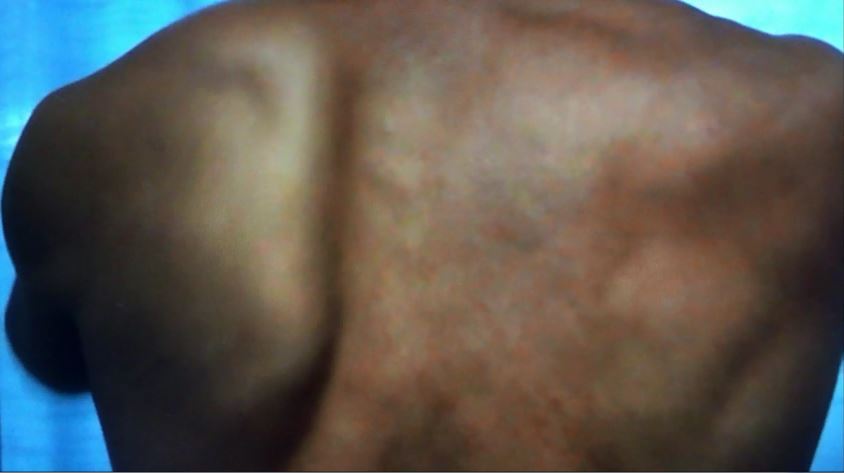
Shoulder pain is a common problem. It is one of the top four reasons why people see their physiotherapist. The scapula (shoulder blade) is commonly blamed for causing someone’s shoulder pain. However, our understanding about the relationship between shoulder pain and scapula motion has since improved with new research findings.
When you perform a shoulder movement, the scapula follows the arm bone in a particular pattern of motion. Scapula dyskinesia is when this pattern is considered abnormal. When it gets tricky is when we try to determine what exactly defines ‘normal’ movement of the scapula. Our current understanding of ‘normal’ has been developed based on studying people with non-painful shoulders. It was thought for a long time that scapula dyskinesia causes the shoulder pain, but it might not always be the case, in fact it could be the other way around!
The research has been able to consistently show us that shoulder pain can actually cause dyskinesia. That is, people who had no pain and no dyskinesia were injected with a painful substance and this then led to those funny looking movements of the scapula. Therefore, scapula dyskinesia may in some cases be a short term response to acute shoulder pain. When the pain persists beyond the acute phase, the presence of scapula dyskinesia might actually be causing more problems, preventing the shoulder pain from improving.
Our physios believe that an important part of the shoulder examination includes assessment of scapula movement to determine if it is a contributing factor to the patient’s pain. If the scapula is found to be a contributor, treatment can be directed towards it and may involve:
- Manual therapy to correct tightness that might affect scapula movement
- Exercises that teach you how to change the way you move your scapula
- Taping the scapula to help it move differently
- Strengthening exercises for the scapula and rotator cuff muscles
- A functional exercise program that helps you achieve your goals
But what if you have scapula dyskinesia and no pain?
The research is not yet clear whether scapula dyskinesia causes pain in the general population. There are some studies in high level, finely tuned athletes that show that the presence of scapula dyskinesia is linked to developing pain in the future. Clinical experience says that if one scapula moves differently to the other, consider trying to change it with some strengthening exercises that lower your risk of developing shoulder pain in the future.
Key points:
- Pain can cause scapula dyskinesia
- If you have pain and want to know if your scapula motion is contributing or…
- If you know you have a scapula that moves in a funny way and you’d like to know more about it:
Then call us on 49216879 and we can advise what is the best way to manage it.
